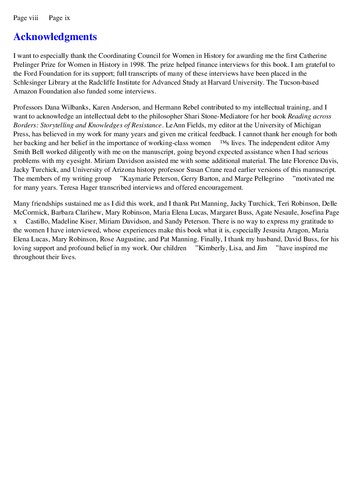

Most ebook files are in PDF format, so you can easily read them using various software such as Foxit Reader or directly on the Google Chrome browser.
Some ebook files are released by publishers in other formats such as .awz, .mobi, .epub, .fb2, etc. You may need to install specific software to read these formats on mobile/PC, such as Calibre.
Please read the tutorial at this link: https://ebookbell.com/faq
We offer FREE conversion to the popular formats you request; however, this may take some time. Therefore, right after payment, please email us, and we will try to provide the service as quickly as possible.
For some exceptional file formats or broken links (if any), please refrain from opening any disputes. Instead, email us first, and we will try to assist within a maximum of 6 hours.
EbookBell Team

4.3
48 reviewsFran Leeper Buss, a former welfare recipient who earned a PhD in history and became a pioneer in the field of oral history, has for forty years dedicated herself to the goal of collecting the stories of marginal and working-class U.S. women. Memory, Meaning, and Resistance is based on over 100 oral histories gathered from women from a variety of racial, ethnic, and geographical backgrounds, including a traditional Mexican American midwife, a Latina poet and organizer for the United Farm Workers, and an African American union and freedom movement organizer. Buss now analyzes this body of work, identifying common themes in women’s lives and resistance that unite the oral histories she has gathered. From the beginning, her work has shed light on the inseparable, compounding effects of gender, race, ethnicity, and class on women’s lives—what is now commonly called intersectionality. Memory, Meaning, and Resistance is structured thematically, with each chapter analyzing a concept that runs through the oral histories, e.g., agency, activism, religion. The result is a testament to women’s individual and collective strength, and an invaluable guide for students and researchers, on how to effectively and sensitively conduct oral histories that observe, record, recount, and analyze women’s life stories.